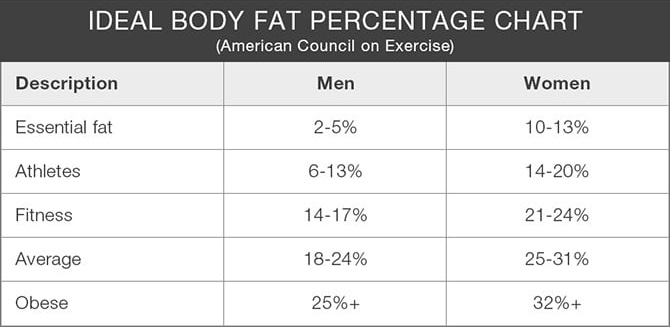Georgia Personal Training
Weight Loss, Physique Sculpting, Sports Performance, Nutrition
“A journey of a thousand miles begins with a single step.”
At Georgia Personal Training (GPT), we pride ourselves on providing the most elite personal training services in Metro Atlanta. Since 2008, we have worked hard to provide the most effective, cutting edge, science based training in the area at the most affordable prices. Our training programs include weight loss, fat reduction, sports performance training, speed and agility, physique sculpting, metabolic conditioning, physical therapy, injury prevention, nutritional coaching, yoga, kickboxing, and more. For more than a decade we have consistently produced amazing results for people of all walks of life. GPT trainers are certified, experienced, caring, and driven to help you succeed. We measure our success purely based on the results our clients attain. Whether you are brand new to fitness and need someone to show you the ropes, or you’re a competitive athlete looking to take your game to another level, GPT is the place for you. Contact us today to schedule your free consultation and complimentary training session, and give us the opportunity to earn your business and change your life.
If your 2021 New Years resolution is to get in healthier condition, Georgia Personal Training will help you on the journey!

Build Muscle, Boost Metabolism, Decrease Body Fat, Lose Inches
An estimated 160 million Americans are either overweight or obese. Nearly three quarters of American men and more than 60% of women are obese or overweight. Being overweight severely increases the risk of many health problems such as type 2 diabetes, heart disease and stroke, certain types of cancer, arthritis, sleep apnea, kidney disease, high blood pressure, and complications during pregnancy. Obesity is a grave public health threat – statistically more dangerous than the opioid crisis, and comparable to cigarette smoking as one of the leading preventable causes of death in the United States.
Heart Disease is the leading cause of death in both men and women worldwide, and one of the primary causes of heart disease is obesity. Currently 1 in 3 Americans suffer from high blood pressure. An estimated 15 million American adults have coronary heart disease, and 1 of every 4 American deaths each year are due to heart disease. Obese adults spend roughly $2000 more per year in direct health care costs, and are three times as likely to be prescribed prescription drugs than those of a normal weight.
The primary measuring tool for determining overweight and obesity is the Body Mass Index or BMI. BMI is a basic height to weight ratio for which the exact formula is a person’s weight (in kilograms) divided by the square of his or her height (in meters). Overweight and obesity are defined by the World Health Organization as abnormal or excessive fat that accumulate and present a risk to health. The Centers for Disease Control classify being overweight as having a BMI of 25-29, and obesity as having a BMI of more than 30. A BMI of 40 or higher is classified as extremely obese.
BMI was designed for use in large populations rather than for specific individuals. So while BMI is still the most commonly used measure of overweight and obesity, it is definitely not the best. The primary reason for this is that BMI does not make a distinction between muscle and body fat. BMI tests often over-diagnose obesity when someone carries a lot of muscle and little body fat. Athletes or bodybuilders, for example, will typically have significantly more muscle mass than an average person, and at the same time much less body fat. But because muscle weighs considerably more than fat, their height to weight ratio will usually not conform to normal BMI standards, and they will be diagnosed as obese.
To the contrary, the majority of non-athletes have very little muscle mass and higher body fat percentages. Yet they may still fall in the normal BMI range even though they have an unhealthy amount of fat. This condition is called normal weight obesity. In addition and maybe most importantly, the negative health effects of obesity and being overweight are almost entirely due to a person’s body fat percentage rather than weight itself. Lean muscle does not contribute to type 2 diabetes, heart disease, or any of the other health conditions brought on by obesity.
A better determinant of a healthy weight is a healthy body composition. Therefore body fat percentage offers a much better statistical measure for whether or not a person is overweight. So what should your body fat percentage be? Opinion varies based on several determining factors such as gender, age, and fitness level. Gender – Women have more body fat than men for physiological reasons. Age – Your body fat will typically rise as you age due to metabolism and hormonal changes. Fitness level – An elite athlete may be in peak condition at a body fat of 5%, where as a number that low for an inactive person with little muscle mass would be considered unhealthy. The following chart is the industry standard for measuring ideal body fat percentage.
Here’s the bottom line. Being overweight is unhealthy. Being obese is dangerous. Yet even with all of the statistics, studies, commercials, documentaries, online articles, tv shows, infomercials, etc. – all screaming at us every day to lose weight or risk severe consequences, people are still not changing their lifestyles. Although exercise statistics have been steadily rising over the last few years, the numbers are still less than impressive to say the least.
The U.S. Department of Health and Human Services recommends that those between the ages of 18 and 64 engage in at least 150 minutes of moderate physical activity, or 75 minutes of vigorous physical activity every week. Currently only 22.9% of Americans are meeting these minimum guidelines, and only 16% of Americans currently belong to a gym or health club.
If you took the time to read this entire page, then you are clearly serious about changing your life. Contact us today to set up your free personal training consultation in which we will assess your current BMI and body fat%, evaluate your current fitness level, discuss your health and fitness goals, and design a program specifically for you.

Georgia Personal Training Center is one of the premier personal training studios in metro Atlanta. We offer elite level training programs as well as nutritional
coaching at very affordable prices. The facility is co-located with our 24 hour fitness center, at 9420 Willeo Road (Suite 105 & 106), Roswell, Georgia 30075.
Our fitness center is loaded with state of the art strength training and cardio equipment, as well as specialized pieces for our sports performance and physical therapy clients. Georgia Personal Training customers enjoy unlimited access to our Anytime 24 hour fitness center as part of their training program.


